***NOTE: This section is culled and edited from transcriptions of the several roundtable interviews with members of the Your Highness cast and crew: David Gordon Green (Director), Danny McBride (Thadeous), James Franco (Fabious), Zooey Deschanel (Belladonna), Justin Theroux (Leezar), Jonathan Mone & Andrew Davis (Executive Producers). Junketeers include: Drew McWeeny (HitFix), Devin Faraci (CHUD), Mike Sampson (JoBlo), Orlando Parfitt (IGN), Pete Stanton (AOL, Cinematical), Eric Vespe (AICN), Hunter Stephensen (SlashFilm), and Yours Truly (who have been condensed into one “Junketeer” for these purposes). While I probably should have broken them up into a series of distinct, more digestible posts, I trust that you, courageous reader, have the strength and stamina to absorb one larger, self-contained narrative.
In order to smooth out the linguistic flow of the proceedings, “Kind ofs,” “Likes,” “Sos,” and other insignificant phrases have been excised. Also, some verb tenses have been shaped and shifted along the way. Apologies if any interviewees feel they have been unduly manipulated by the author’s rearranging and refashioning of their words. Misrepresentation was not the intention.***
PART SIX: An Online Press Junket Oral History
DANNY MCBRIDE: We literally walk in the first day and we’re like, “This is Krull meets Barry Lyndon,” and they just stopped, they were like, “Don’t ever phrase this movie like that ever again.” [loud laughter] Honestly, it’s a miracle. I think that if we would’ve been behind by like a month, it probably wouldn’t have happened. I think we just snuck in at the perfect time, and we were too far down the road for them to turn it back around. [laughter] But they’ve been really happy with everything they’ve seen too, with the scope. I think they realized pretty quickly that we weren’t just trying to make some small comedy. We were taking the tone, we were taking the design of this, and we wanted to make it feel like a big epic fantasy film. I think that’s what they wanted and I think they were surprised at how we’ve been able to pull that off so far.
Junketeer: You talk about trying to set the tone for the film. How do you establish what the reality of a movie as outrageous as this is and how do you communicate that across the board?
DANNY MCBRIDE: One thing we’ve always said is it’s not a parody at all. That’s been the one thing, I think everyone has [breathed] a sigh of relief, all the actors, we make sure [to tell them], “It’s not a parody, we’re not trying to make Spaceballs.” We really just want to make a fantasy movie for real that just happens to be funny. And a lot of that humor just comes from taking a guy like my character and putting him in this situation. This type of guy is not the guy who usually goes along in this fantasy movie. But you surround him with these characters that feel very much like they’re in a fantasy movie. Fabious, Franco’s character, is like Beowulf. He’s this guy who just goes out and whoops the shit out of monsters all the time and kills shit, and at the end of the day he has a brother that he’s very affectionate for, and he wants to show him this adventure as well. Natalie Portman’s character Isabel, she’s kind of modeled after a Red Sonja, just like some chick who’s out there just always kickin’ ass and murdering things. And our take on it is like that’s what she does, but at the same time a chick who does that probably has, like, intimacy issues, connecting with someone.
DAVID GORDON GREEN: It never makes fun of the fantasy world. And I would debate whether it’s approached as a comedy at all, anyway. I think it’s a very fun, funny, entertaining movie, but we’re approaching it as a fantasy adventure film. ‘Cause I think the second you start feelin’ a little ‘winky-winky’ then it turns into, who are those guys that make those movies that ‘winky-winky,’ ya know?
There are no ‘jokes’ in this movie. There’s a lot of funny shit that happens but it’s not any set-up/payoff wit really. I think there are some things that by knowing the genre, being a movie geek, you’ll find things that are referential to some degree, but it never satirizes it. Hopefully.
Junketeer: With all the great fantasy films there’s always a deep mythology. How much mythology did you guys sit down and create as far as this world and the cultures within it?
DAVID GORDON GREEN: It evolved a lot from the very first draft that I read to where it is right now. And a lot of it came from a financial reality and a location reality. We came here in January and explored all over Ireland and Scotland and England and tried to find where that place was. So then, all of a sudden, we have a place to put picture and write for locations, and cast and everything. It’s literally just a puzzle that started with a lot of ideas that were way too expensive, and nobody would ever let us make it, and then trying to find a way to get it going as creatively and efficiently as possible. Because you know the more expensive a movie is, the more people are breathing down your neck about it. I feel that we found just the right arena where people are like, “Okay, now go do your thing and we’re not gonna bother you too much.” Which is exactly where I wanna be. I would stress out if I was trying to make a movie by committee or in the assembly line of what the industry can sometimes dictate. Trying to find a figure that’s responsible for us, then to go and make what we believe in.
DAVID GORDON GREEN: All of it, honestly. I mean, I could take twice the days and make the movie and fine-tune the action, ‘cause there is… within the realm of an industry we’re making a comedy. Within the realm of our heads and our technology and the logistics of the movie, we’re making a huge epic period piece action movie. Once you have special effects—be it the practical guys in suits or the stuff that we’re doing that’s more live and robotic, or the stuff that’s CG enhancements—everything takes up consideration and time, and, you know, I don’t think we’ve done more than twelve takes on anything. It’s rare that we go more than four. It’s just blazing, every take is different. I haven’t even pulled a script out in three or four weeks. [laughter] It really is fresh and improvised and we look at the set and we see who’s there and we feel what should be said and we try to engage in that and get the department heads together [and ask], “How can we efficiently approach this day?” Or it’s raining and it’s not supposed to be raining but we’ll never have a chance to come back here ‘cause the location’s too far away. So you do use a lot of the independent-minded, no budget, certainly the life lessons I’ve had over the past 10 years.
Junketeer: Compared to other movies you’ve been on, does this feel more like part of a collective?
ZOOEY DESCHANEL: It’s hard to say ‘compared to one movie or another movie,’ but I had worked with David and Danny before, and Mike over here [Ed. note: Yes, she was referring to me and yes that moment was awkward]—All the Real Girls!—and a bunch of the other crew members. Yeah, I mean, it’s kind of like doing a movie with your friends.
Junketeer: It’s kind of like a blockbuster but, like, from, an indie posse.
ZOOEY DESCHANEL: [laughs] That’s a good way of putting it. I hope it’s a blockbuster! [everyone laughs]
Junketeer: Obviously, David has Tim Orr on the film and the same sound mixer [Chris Gebert], he has a lot of the same guys he’s worked with before and they come from a very indie sensibility. Does that help you on a film this size? That they are used to working very quickly and trying to be as efficient as possible?
JON MONE: One of the big things that helps is just there’s a shorthand between them as filmmakers. There’s not a lot of translation between what they’re looking for. So, for David to have his cinematographer and his sound guy, who he’s worked on with so many films, it’s their ability to communicate and get things done. That, I think, saves a lot of time and a lot of misinterpretation that could happen on other films but won’t happen on this one, which is good.
DAVID GORDON GREEN: That’s a tough question, because I think, I mean, the opening scene in a dwarf village, we just want it to be kick-ass. Danny being chased by 32 dwarfs is an incredible image, and it makes you smile but it’s never condescending. Again, we just have never approached it as satire. And I know there are certainly some gags that we’re using, some of the violence, you know, it’s over-the-top. And it’s exaggerated. I mean, he punches through a dude’s stomach at one point and his fist comes out his back. That’s stuff that is ridiculous. But I think within the world that we’re creating there’s a tone that’s not… I feel like I was having the same conversation eight months ago with the studio. [laughter] ‘Cause it’s a lot of “you know’s!” and it’s like, “No, we don’t know.” Now we’re at the point where we go, “You see?” and they’re like, “Yes, we do see.”
Junketeer: The script has been incredibly fluid, talking with Danny and talking with James about how his character evolved over the course of it, and it sounds like you’ve always pulled it back to character and always pulled it back to relationships in the film. Which is kind of the same thing that defined Pineapple. Is that really your way into a film like this?
DAVID GORDON GREEN: Yeah. And a way to communicate with actors on every level. Like, we’re working on Justin Theroux’s character Leezar and Zooey Deschanel’s character Belladonna, we’re gonna film their date, they have this kind of ‘get to know each other’ night in Leezar’s lair. And we’re trying to approach the date. And we’re thinking about it in terms of, like, well she’s been away with Fabious for a week at the castle, and now she knows what it’s like to live a wonderful life rather than locked up, ‘cause she’s been his prisoner for so many years. And so we’re approaching it like a girl from a small town that’s gone to Paris to study abroad for a semester and comes back to her old boyfriend and she’s gotta explain what she thinks is so amazing about Paris and he’s just like, “Yeah, but those cocksuckers just sleep around.” [laughter] Trying to down talk what she’s doing. So we’re trying to come up with contemporary reference points, more so for us. But I think ultimately that does help it to transcend and make it relatable to the audience so that everything does have—as fantastic as the world is, as unique as the world is—it’s identifiable.
Junketeer: To be funny without being “funny”—is that something you work on with David or do you tap into that yourself?
ZOOEY DESCHANEL: The story has a lot of ridiculous elements to it. Committing fully to those is my main goal. Because I think that if you’re serving yourself before you’re serving a story then that’s where you end up being not funny. And if you don’t try to be funny but you just serve the story… it’s not about being funny, it’s about telling a story and then the comedy comes out of the situation, I think.
Junketeer: How do you play that as an actor? Obviously, everyone’s having fun yet this isn’t dumb, sketch humor, there’s a reality to it.
JUSTIN THEROUX: I’m playing it not much different than I would something that was dramatic. I’m allowing it to be funny if it can be, but I’m taking it pretty seriously, as far as just telling the story and pushing it along. Again, not trying to do any cheap tricks. The danger in this kind of thing is you could put a blow job joke in every five minutes and it stops being funny. So it has to be really specifically planted if you’re gonna use a curse word or something like that. That’s why I feel like it has those kind of legs. It was one of those things where I read the script and was like, “Oh fuck, of course, it’s so smart.” It’s not a stupid—I mean it is stupid—but it’s intelligently done. So I just played it straight, I guess.
Junketeer: So, let’s describe your look. [laughter] Were you involved?
The reptilian stylings of Leezar (Justin Theroux).
JUSTIN THEROUX: Yeah. Half involved, as it were. We basically just had, we didn’t know what to do, so we figured he’s probably like 200 years old, the normal kind of thing. And then we just watched Dracula and tried to steal that. [everyone laughs] So that was the gist of it, literally, like, let’s do it like Gary Oldman but enough not like Gary Oldman so it wouldn’t look like we were taking it directly from Gary Oldman.
Junketeer: These roles have gotta be tough because you can’t get too broad. I mean, you can go broad but not so broad. Yet, here you are, this wizard and this ridiculousness, with this silly accent and everything. How do you know how broad to go without killing the reality?
JUSTIN THEROUX: David’s good at reining it in. But, I mean, we’re wearing capes and shit so it’s pretty broad. [everyone laughs] I can’t go that broad, ya know? Physically, as a person, I can’t. The gig for me is to treat a scene real.
Junketeer: How would you describe Leezar’s fashion sense?
JUSTIN THEROUX: [laughs] Snaky! Lizard-y. Alligator-y. Anaconda-y. Any kind of reptile print.
Junketeer: There’s an ‘80s influence too?
JUSTIN THEROUX: Yeah. Look at my boots. Cobweb-y. Zipper-y. I feel like a fuckin’ Girl Scout. There’s spider webs. Just fuckin’ Villain-y!
JAMES FRANCO: When I did Tristan and… I think you’re supposed to pronounce it “Izz-ULL-duh“… but for whatever reason on that stupid movie we called it “Izz-OLLD.” [laughter] On that, I signed on like nine months in advance of shooting. And I was a young, idealistic actor. And in the script there were all these battle scenes on horseback. And I’d never really, I’d been on trail horses, but I didn’t really know how to ride. I thought, “Well, I’ll learn. I’ll be the best horse rider and swordsman they’d ever seen!” And so, without exaggeration, I did sword training every day, seven days a week, and horseback riding every day. And a lot of it came out of my own pocket. I’d go to Griffith Park in LA and ride every day. And at first I was horrible. I probably fell off about 50 times. But I think I got pretty good. I could do tricks. I could stand on its back while it was galloping, jump off while it was galloping, jump back on backwards, everything. And then when we got to Ireland and we were ready to shoot, there was a new draft of the script. I mean, I should’ve just been working closer with the director and said, “Alright, is this gonna stay in?” [laughter] “Should I be paying all this money and doing all this stuff for this movie? Are these scenes gonna stay in?” But I didn’t, and the scenes didn’t stay in. So, I had all this training and it never really made it on screen.
Junketeer: You and Franco have worked together before, obviously. Does that help in terms of the relationship you have on screen?
DANNY MCBRIDE: I think it definitely does. I mean, we like to just keep things on the set super relaxed and everyone having a good time. At the end of the day, it’s not like we’re solving the world’s problems. We’re just making a fantasy movie. So you might as well enjoy doing that as opposed to have there be tension and people bickering. So for us it’s really important, if you don’t want to be there, it’s kinda hard to make it funny. With Franco, we just really get along with him and he’s just a sweet guy, so it definitely makes everything easy when you get in there and there’s no ‘feeling each other out’ to see if they’re gonna get offended or anything. Franco’s down to play.
Junketeer: It seems like there’s no way you could go too far with something like this. Has there ever been a moment where you guys looked at each other after doing something and gone, “No. That was too much.”
DANNY MCBRIDE: We, uh… no, it’s never happened. [laughter] There have definitely been moments, there’ve been several moments, I don’t wanna ruin anything for you guys, but there was one moment in particular that, David and I, for the whole day our jaws were dropped when we were filming this sequence, just like, “I cannot believe this is being funded by a fucking studio, this is insane!” [laughter] And you have a whole crew trying to figure out how to make this really fucked up thing happen. There have been a lot of those moments in there.
Junketeer: Jody [Hill] talks about how he wants a movie to, when you’re watching it you realize you’re watching a movie, but there’s this kind of hyperrealism. Does that play into this? ‘Cause you guys love movies, so it’s gonna show on screen.
DANNY MCBRIDE: For sure. This is a love letter to all the films that, I mean, you guys grew up with the same films. It’s like all the stuff when I was a kid that would blow my mind. Everything from, you know, Krull, Clash of the Titans, Conan the Barbarian, Beastmaster, Death Stalker, all these films that I loved when I was a kid. So it’s just cool to have the experience of making a movie like that, when you come to work every day and you’ve gotta get blood on you and you carry around a sword and get used to using it, fuckin’ wear armor every day. It’s just been crazy coming to work doing that. I remember when I used to have to wear an apron at Crocodile Café. This is definitely a step up.
Junketeer: Danny was saying before that a lot of the improv, you’d stick to the script maybe on the first couple takes and then after that you were free to try different things. Is it hard to do that when, you know, like you’re saying now, you have to keep it real, you’re in period, your little modernisms mixed in with that—that’s a lot to go with on the fly.
JAMES FRANCO: Yeah, it’s tough. I mean, it’s definitely a balance. And the whole movie is a balance in tone, in the types of actors that are hired, everything. And that’s kind of David Gordon Green’s style. So, you know, you’ll have someone like Danny McBride, who’s a very funny comedic actor. And then you’ll have Toby Jones who’s normally in dramas, a very kind of heavy, weighty actor. And so that kind of contrast is on every level. So when you’re improvising, you’re feeling your way. And David and Danny are there to guide it, but it is kinda finding a weird tonal middle ground between, you know, modern humor, contemporary humor, and this old-fashioned fantasy world. And so you don’t wanna go too far in either direction. David always describes the movie as an action/adventure movie. He never wants to call it a comedy. But then when we get on set, then he’s really pushing the comedy. But it just kinda speaks to how, what he’s really interested in is combining a bunch of different elements to give this weird, ambiguous tone.
ZOOEY DESCHANEL: What doesn’t Danny bring to this movie?! He wrote the script and he’s involved in every decision, basically.
Junketeer: Could you have imagined when he was Bust-Ass that this is where he would end up, doing this?
ZOOEY DESCHANEL: I did think right after All the Real Girls, which was sort of foolish of me, but I was like, “Here we go, he’s gonna be a huge star now,” because he’s so hilarious. But it took a little bit longer. Other people were like, “Oh my God, it happened so fast!” I was like, “You mean it happened so slow.” It seemed like he should have been the next Will Ferrell the next day.
DANNY MCBRIDE: We all speak in accents in this, which is pretty interesting. Watching a lot of these old fantasy films, there are pretty shitty accents, like Matthew Broderick in Ladyhawke. [loud laughter] He has an English accent for like the first, you know, scene. [loud laughter] So we just kinda used that, like, nobody’s accent sounds great so we just embraced that and went with it and they kind of evolve into their own thing. At least everyone is consistently bad, which is good. But we try for the most part to keep it in some sort of high speak, but as alts there will always be some kind of weird Americanism thrown in there.
Junketeer: How does David work as a director? I saw him a little bit out there before where he’s behind camera and he’s throwing out lines to James. Does he work that way with you as well?
JUSTIN THEROUX: Yeah. My character sort of speaks in speeches most of the time, it’s a little bit annoying, so, again, I have to ride that thing. And so people are, at least in my scenes, sort of reacting to what I’m doing. So if I go off the rails too much it can lead down a path that’s not a) funny, or b) interesting. But he does the same thing with me where he’ll say, “Do it like this this time,” or, “Try changing that word to this.” But he’s really good at riding that line of humor but also maintaining the spine or integrity of the movie and making sure that it’s also hopefully interesting to watch plot-wise, so that if it’s not particularly your brand of humor you can at least get off on the effects or whatever.
Junketeer: There’s a lot of practical stuff. I mean, we saw terrific creatures. Was that important for you walking in, to do things practically, or would you ever consider doing things in CGI?
DAVID GORDON GREEN: We have one CG creature, but it all begins with my insecurity in… The easiest way to put it is when I shoot a bar scene, bar scenes are the hardest thing to have actors act like they’re talking loud but there’s no real music playing. So things that I can’t see, I have kind of a poor imagination in that respect. I can’t imagine, or I have a harder time imagining they’re gonna be fighting something or encountering something or having a conversation with something that’s not really there. We have a character, that’s a bird, I think you might have seen…
Junketeers: Simon!
DAVID GORDON GREEN: Simon is a bird that any time we can have the robotic bird—this incredible company Spectral Motion’s designed this really elaborate character—anytime we can have that I breathe a sigh of relief. Not because it’s ‘the coolest way to do it’ but it’s the way that I know the actors are engaged in, and I can see the scene in my head. I’m not trying to imagine what’s gonna be happening. So later, when I wrap that day, I’ll be like, “We got the scene,” I know it. Just as when I can roll a scene in a bar and play the music and everybody’s talking, I know it. I hate to wrap a day and be like, “I think… we got it? When we put it all together in post it’ll be… cool?”
Junketeer: Obviously, because there are new skill sets that you’re learning on this movie, the CG and things like that, I spoke to [Brad] Silberling on Land [of the Lost] and he said that you guys talked a little bit, and you talked about meeting with Guillermo [del Toro], is there a learning curve for you on this? Are you more comfortable now? Do you feel if you did this again you would have a different approach to it?
DAVID GORDON GREEN: I’m very comfortable in that I spoke to a lot of very helpful filmmakers that had taken those steps. And some guys like Sam Raimi that had gone from the very nitty-gritty practical to taking huge leaps with Spider-Man. The people that would give you, “Hey, this is how a normal guy knows how to do crazy shit.” Everybody doesn’t know how to do all that stuff out of the gate. I just assumed, you know, people were born with the instinct to know how to do all these things. What is really helpful to me is having smart, understanding, non-condescending department heads. This company Framestorm out of London is doing our special effects. And Mike McGee, the guy that is the supervisor, knows how to explain it to me in a way that I can take practical experience and understand when he needs to come out and bring sticks and balls and see things. I don’t know what that’s all about, and I don’t need to necessarily. But I know how what he needs me to do can affect the camera department or the production design department. So it’s people that are just really good at communicating to me. And I did a ton of homework.
DANNY MCBRIDE: That’s what I really love about David too. He just gets in there with the performances. It’s been fun to watch him with these esteemed British actors like Charles Dance and, you know, Toby Jones and Damian Lewis, these guys, and how they react to his direction. “Now, Charles, do it like you’re taking a shit.” [laughter] You see this look of recognition like, “Fuck.”
Junketeer: For fans of David’s early films like All the Real Girls or George Washington, the sort of ‘left turn’ he’s taken has been a surprise. But by all accounts, the people that have worked with him throughout say that this has always been David.
ZOOEY DESCHANEL: I always thought other movies of David’s always had really funny bits. So he obviously was capable of that. But it’s just a different part of his personality that he’s expressing. But I think he’ll make other really striking choices that will surprise his fans for sure. I was waiting for him to do a comedy forever. He’s one of the funniest people I know.
Junketeer: We’ve been talking about this amongst ourselves but as producers this is maybe a good question for you guys: Are you gonna get an R-rating on this? Are you worried about it going [past that]?
JON MONE: David’s style of directing involves a lot of alts, a lot of safeties. And as crazy as they will take it, and almost every take does have a range—it goes pretty far—there’s also an option that goes pretty far back. So we’re confident we can bring it down as much as we need to. There are certain things we’re tied to in terms of plot that could push you there [everyone laughs as we know what he’s talking about], but I think even within that we can play it safe enough to be fine.
ANDREW DAVIS: That’s not to say in any way we want to make the movie safe. I mean, the truth is we will push the limit as far as we can up to that wall of insanity.
It’s completely arbitrary. The truth is, it’s arbitrary. It’s whoever’s offended by something on that day. You know, if their daughter came home from school and said, “Oh my God, I heard this at school today,” that may be something that ticks them off, ‘cause it is individuals. The crazy thing, I think—we talk about it—is there’s stuff you can put on television at nine o’clock that you can’t put in a movie. Which is really astounding.
Junketeer: How do you sell it? Do you sell it as a comedy? Do you sell it as a fantasy? Do you sell it both?
JON MONE: In terms of a fantasy film, one of the things we tried to hold ourselves to was, if let’s say you strip away the comedy, would this survive as a fantasy film, would you be interested in following a straight version of the story. You know, two brothers who have to go on a quest to save their kingdom and come along these obstacles along the way. I’d like to think that it actually would do quite well in that regard. There’s some really interesting mythology laid in by Danny and David, there are some amazing beasts, some dynamics in the storytelling itself that I think stand up to lots of fantasy films I’ve seen recently. There’s some really smart plot turns and classic mythology about overcoming things that I think would work totally on its own. So that’s the big test of it. A lot of movies look at things in that way, you know, would it survive on its own, beyond what it is?
Junketeer: What do you want to contribute to the genre?
DAVID GORDON GREEN: I think literally just a really good times, fun movie, that we can bring the 11-year-old out and everyone can watch it. The idea is you put something together that no one can’t just be, you know, laughing their way through it, getting excited, getting pumped, high-fiving their friends and really feeling it’s fresh. ‘Cause there’s not, particularly with this budget and our approach to this movie, we’re not gonna ‘out cool’ the intelligence of Lord of the Rings. So many of the elements within the genre have been mastered. But this is like taking the fun popcorn of going to see Temple of Doom with my father when I was in the second grade and him having to cover my eyes when he rips the heart out. And those are literally the best moments of my life. Or sneaking movies on cable. So much of what this movie represents is me being literally 11 years old and geeking out about movies. And I think so many people have loved the movies that this is an homage to. Some of them far more cult and underground than others, but the idea is you can make that matinee movie that is an R-rated good time for college kids, adults, grandmas and grandpas.
***Next week, there will be one more post in which I wrap up my experience and try come to terms with the many strange feelings and thoughts this trip triggered.***
***Read “YOUR HIGHNESS SET VISIT – PARTS ONE AND TWO” if you haven’t already.***
***Then read “YOUR HIGHNESS SET VISIT – PARTS THREE, FOUR, AND FIVE” if you haven’t read that one.***
***Also, check out “YOUR HIGHNESS SET VISIT – AN INTRODUCTION” to see some more cool pics.***
***Also-also, don’t forget to vote in this week’s poll on the main page to let us know which is your favorite David Gordon Green movie.***
— Michael Tully







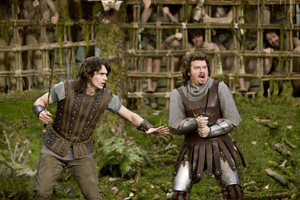
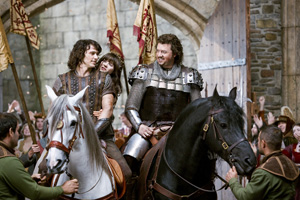
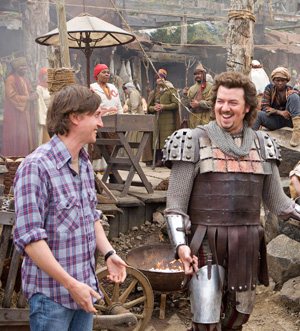
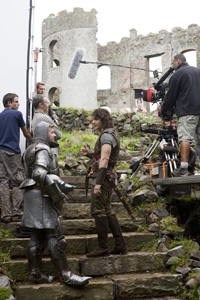
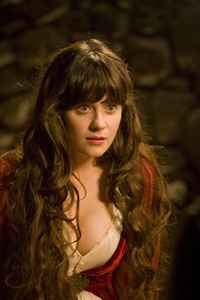
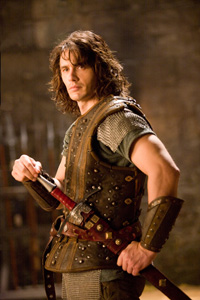
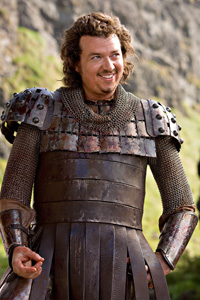
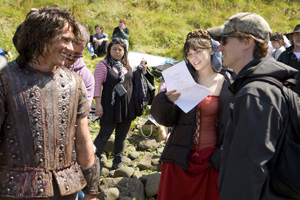
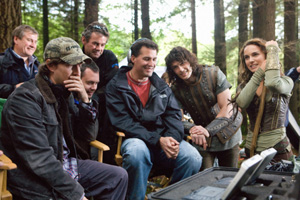


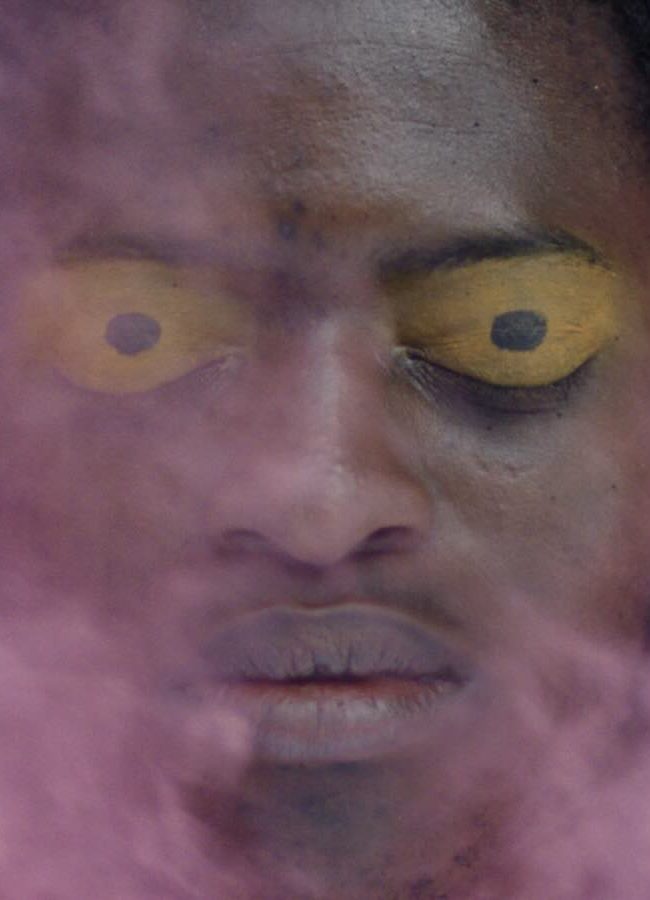


Pingback: YOUR HIGHNESS – Hammer to Nail